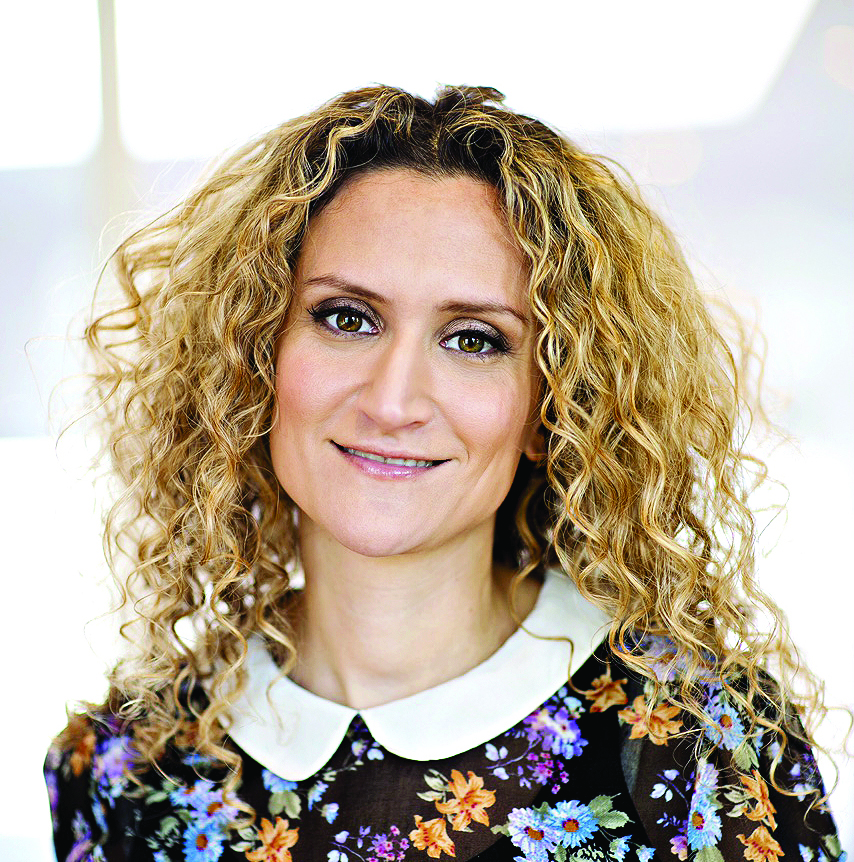Ask Dr Ellie Cannon! This week: Vaping, scarlet fever and skin moles
Our resident GP Ellie Cannon answers your burning medical questions...
Q I was surprised last week when my GP suggested I switch from smoking cigarettes to e-cigarettes. I expected him to tell me to quit. Should he be recommending vaping?
I’m pleased your GP had this discussion with you. E-cigarettes were a tricky issue for doctors: They came into the UK in 2004 and their popularity grew exponentially through marketing and as a commercial interest, far removed from any health or pharmaceutical product. More than 2.5 million people now use them in the UK.
The medical profession has really had to play catch up in terms of recommending them as a quit aid and understanding their harms. Last year, the Royal College of Physicians published its evidence on the use of e-cigarettes and the results speak for themselves: If there are health risks from using e-cigarettes, there will be fewer than five percent of those smoking tobacco.
That is a huge improvement for a smoker, so doctors now feel able to recommend them as a quit aid. Incidentally, they are not completely harm-free; doctors would not recommend them as a habit to a non-smoker, only as an alternative for smokers.
The health risks from smoking in the main come from the tobacco, so if that is removed, most of the danger is also removed. This is why nicotine replacement products, such as patches and gum, are safe. In 2014 to 2015, two-thirds of people who combined use of an e-cigarette with a smoking support service to quit smoking successfully gave up the habit.
Q My child’s school has had an outbreak of scarlet fever. I thought that illness vanished in Victorian times. What do I need to know?

We still see a lot of scarlet fever and there have been outbreaks recently all over England.
Last winter there were 12,906 cases in the UK, a rise of well over 5,000 from the year before. We are not sure why there has been such an increase recently but, as long as parents are aware, there is no cause for alarm.
Scarlet fever is a bacterial throat infection that also causes a fever, a sore throat and a red, papery-feeling rash.
The rash starts spotty, then spreads and becomes redder with facial flushing, resulting in a miserable, unwell child who looks very flushed. It spreads easily round schools because the bacteria can be passed on in coughs and sneezes.
The usual age group for children to be affected is from two to eight, but the illness can affect anyone.
The diagnosis needs to be made by a doctor on the basis of the rash, in combination with the throat infection and other signs, such as swollen glands.
Children can also get something called a strawberry tongue, where the tongue looks red and swollen like a strawberry.
Nowadays, thanks to penicillin, we don’t see severe cases of scarlet fever.
Once treatment with penicillin starts, the illness quickly resolves.
It is very contagious, so children need to be isolated and kept off school until their fever has gone and the antibiotics have kicked in.
Q I have a skin mole that looks as if it may have changed over the past few months. How do I know whether to see a doctor or not?
Generally speaking, if you are worried about a change, it is usually worth getting the reassurance from a medical examination.
I find the best way for individuals to keep an eye on their own moles is to take a photo of them on your phone, so you can refer back if you think any have changed – we do that in clinic and it is a great way to be sure.
Essentially, most moles are harmless; what you need to watch out for are unusual ones that don’t look like the others – what I have heard dermatologists call ‘ugly ducklings’, or ones that are changing.
Looking for changes specifically means keeping an eye out for ones that are asymmetrical in shape or have a very jagged border – not the nice round ones.
Irregular colour across the mole is also a warning, as is a change in the way it feels: itching, rough or bleeding, for example.
Growing in size is important, particularly if it is more than 7mm.
Do not be alarmed, as normal moles do change very gradually over years, but more noticeable changes as described should be checked out promptly.
A cancerous mole, or melanoma, is the least common but most serious form of skin cancer, and the earlier it is detected and treated, the better the outcome.

Thank you for helping to make Jewish News the leading source of news and opinion for the UK Jewish community. Today we're asking for your invaluable help to continue putting our community first in everything we do.
For as little as £5 a month you can help sustain the vital work we do in celebrating and standing up for Jewish life in Britain.
Jewish News holds our community together and keeps us connected. Like a synagogue, it’s where people turn to feel part of something bigger. It also proudly shows the rest of Britain the vibrancy and rich culture of modern Jewish life.
You can make a quick and easy one-off or monthly contribution of £5, £10, £20 or any other sum you’re comfortable with.
100% of your donation will help us continue celebrating our community, in all its dynamic diversity...
Engaging
Being a community platform means so much more than producing a newspaper and website. One of our proudest roles is media partnering with our invaluable charities to amplify the outstanding work they do to help us all.
Celebrating
There’s no shortage of oys in the world but Jewish News takes every opportunity to celebrate the joys too, through projects like Night of Heroes, 40 Under 40 and other compelling countdowns that make the community kvell with pride.
Pioneering
In the first collaboration between media outlets from different faiths, Jewish News worked with British Muslim TV and Church Times to produce a list of young activists leading the way on interfaith understanding.
Campaigning
Royal Mail issued a stamp honouring Holocaust hero Sir Nicholas Winton after a Jewish News campaign attracted more than 100,000 backers. Jewish Newsalso produces special editions of the paper highlighting pressing issues including mental health and Holocaust remembrance.
Easy access
In an age when news is readily accessible, Jewish News provides high-quality content free online and offline, removing any financial barriers to connecting people.
Voice of our community to wider society
The Jewish News team regularly appears on TV, radio and on the pages of the national press to comment on stories about the Jewish community. Easy access to the paper on the streets of London also means Jewish News provides an invaluable window into the community for the country at large.
We hope you agree all this is worth preserving.






















